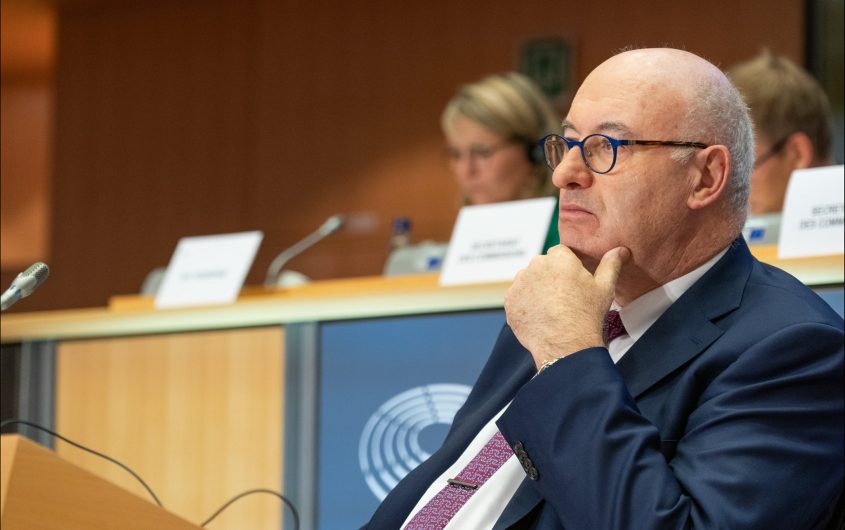AGI News
Peter Rashish on U.S.-EU Trade ahead of EU Trade Commissioner’s Visit to Washington

CC-BY-4.0: © European Union 2019 – Source: EP via Flickr

Peter S. Rashish
Vice President; Director, Geoeconomics Program
Peter S. Rashish, who counts over 30 years of experience counseling corporations, think tanks, foundations, and international organizations on transatlantic trade and economic strategy, is Vice President and Director of the Geoeconomics Program at AICGS. He also writes The Wider Atlantic blog.
Mr. Rashish has served as Vice President for Europe and Eurasia at the U.S. Chamber of Commerce, where he spearheaded the Chamber’s advocacy ahead of the launch of the Transatlantic Trade and Investment Partnership. Previously, Mr. Rashish was a Senior Advisor for Europe at McLarty Associates, Executive Vice President of the European Institute, and a staff member and consultant at the International Energy Agency, the World Bank, UN Trade and Development, the Atlantic Council, the Bertelsmann Foundation, and the German Marshall Fund.
Mr. Rashish has testified before the House Financial Services Subcommittee on International Monetary Policy and Trade and the House Foreign Affairs Subcommittee on Europe and Eurasia and has advised three U.S. presidential campaigns. He has been a featured speaker at the Munich Security Conference, the Aspen Ideas Festival, and the European Forum Alpbach and is a member of the Board of Directors of the Jean Monnet Institute in Paris and a Senior Advisor to the European Policy Centre in Brussels. His commentaries have been published in The New York Times, the Financial Times, The Wall Street Journal, Foreign Policy, and The National Interest, and he has appeared on PBS, CNBC, CNN, NPR, and the BBC.
He earned a BA from Harvard College and an MPhil in international relations from Oxford University. He speaks French, German, Italian, and Spanish.
Peter Rashish, Senior Fellow and Director of the AGI Geoeconomics Program, spoke recently with Politico’s Doug Palmer ahead of the EU Trade Commissioner’s visit to Washington:
“Despite the challenges of reaching any deal this year, Rashish said he’s hopeful that the two sides can recalibrate their approaches to trade in a way that brings them closer together.
For the United States, that would mean working more in the multilateral arena to achieve of its trade objectives, while not completely giving up the unilateral approach.
For the EU, that would mean bolstering its own ability to take unilateral trade action — something the European Commission recently did in the form of new enforcement tool — even though that’s contrary to it multilateral instincts, Rashish said.”
Read the full article on Politico.








